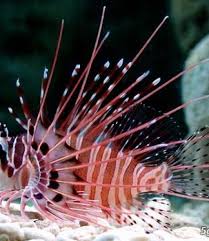In many cultures worldwide, dragons are revered as powerful and mystical beings, often embodying the forces of nature. Nowhere is this belief more deeply ingrained than in Chinese folk traditions, where dragons are not merely mythical creatures but sacred symbols representing earthly and celestial elements. Unlike the fire-breathing monsters of Western mythology, the Chinese dragon (龙 – Lóng) is a divine and benevolent force, controlling the weather, water, wind, and other natural phenomena.
This article explores the intricate relationship between dragons and natural elements in Chinese folk beliefs, examining how they are connected to water, fire, earth, wind, and celestial forces.
1. Dragons and the Element of Water
1.1 The Dragon as the Guardian of Rivers and Oceans
Water is one of the most significant elements in Chinese dragon mythology. The dragon is believed to be the ruler of rivers, lakes, seas, and even rain. Many folk legends depict dragons as water deities who bring prosperity to the land.
- Dragon Kings of the Four Seas (四海龙王 – Sì Hǎi Lóng Wáng) – According to Chinese mythology, the four major oceans are ruled by four Dragon Kings, each governing a different direction (East, West, South, and North). These Dragon Kings control rainfall, storms, and tides, ensuring balance in nature.
- Dragons and River Worship – Many rivers in China, such as the Yangtze River (长江 – Cháng Jiāng), are associated with dragon spirits. Ancient communities often built temples along riverbanks to honor river dragons, praying for calm waters and abundant fish.
1.2 Dragons and Rainmaking Rituals
Dragons play a crucial role in Chinese rainmaking rituals, particularly in agricultural societies. Since rainfall determines the success of crops, farmers have long sought the dragon’s favor.
- Dragon Dance (舞龙 – Wǔ Lóng) – The famous Dragon Dance, performed during festivals, is believed to summon rain and drive away drought. The dance mimics the movement of a dragon through the sky, symbolizing its control over the clouds.
- Rain-Praying Ceremonies – In times of drought, villages would organize ceremonies to honor the Dragon King, offering incense, food, and sacrifices to encourage rainfall.
2. Dragons and the Element of Fire
2.1 The Dual Nature of Dragons: Fire and Water
Although dragons are primarily linked to water, they also hold a strong connection to fire. This duality reflects the balance of yin and yang in nature.
- Yin Dragons (Water) vs. Yang Dragons (Fire) – In Daoist cosmology, dragons can embody both yin (阴 – dark, feminine, water-associated) and yang (阳 – bright, masculine, fire-associated) forces.
- Volcanic Dragons – Some Chinese legends describe fire-breathing dragons that live in mountains and volcanoes, representing the earth’s inner power and destruction.
2.2 Dragons in Fire Rituals and Celebrations
Fire is often associated with purification, transformation, and strength. In many Chinese folk traditions, dragons appear in fire-related rituals to symbolize renewal and protection.
- Fire Dragon Dance (火龙舞 – Huǒ Lóng Wǔ) – In regions like Hong Kong and Guangdong, the Fire Dragon Dance is performed during the Mid-Autumn Festival, where a dragon covered in burning incense is paraded through the streets to ward off evil spirits.
- Dragon and Firecrackers – During Chinese New Year, firecrackers are often set off beneath dragon decorations to symbolize driving away negative energy and welcoming prosperity.
3. Dragons and the Element of Earth
3.1 The Dragon as the Protector of Mountains and Land
In Chinese folklore, dragons are closely tied to the land, serving as guardians of mountains, caves, and fertile fields. Many sacred mountains are believed to be inhabited by dragon spirits.
- Dragon Veins (龙脉 – Lóng Mài) in Feng Shui – Ancient Chinese geomancers believed that the land was filled with dragon veins, or powerful energy lines that determined the prosperity of cities and temples.
- Mountain Dragons – Many myths speak of dragons resting in mountains, causing earthquakes when they stir. This belief linked dragons to geological activity.
3.2 Dragons and Agricultural Blessings
As symbols of fertility, dragons are also invoked in planting and harvest rituals.
- Dragon Totems in Rice Fields – Some farming communities carve dragon symbols in rice paddies, believing they bring abundant crops.
- Dragon Ceremonies in Spring – Before the planting season, villagers perform dragon rituals to seek blessings for good soil and a rich harvest.
4. Dragons and the Element of Wind
4.1 The Dragon as the Controller of Storms and Winds
Dragons are frequently linked to wind and storms, reinforcing their image as nature’s rulers.
- Wind-Calling Dragons – In many legends, dragons can summon and control the wind, often appearing in storms as serpentine figures twisting through the sky.
- Dragon Kites (风筝 – Fēngzhēng) – The tradition of flying dragon-shaped kites in China dates back over 2,000 years and symbolizes harnessing the power of the wind for good fortune.
4.2 Dragons in Typhoon Legends
Some coastal communities believe that typhoons are caused by angry dragons. To calm the storms, fishermen and sailors offer prayers to dragon deities, seeking safe voyages.
5. Dragons and Celestial Elements
5.1 The Dragon and the Sun
Chinese mythology often depicts dragons as celestial beings, influencing the sun, moon, and stars.
- The Solar Dragon Legend – An ancient myth tells of a dragon that pulls the sun across the sky, ensuring the cycle of day and night.
- Eclipses and the Celestial Dragon – In old Chinese beliefs, solar and lunar eclipses were caused by a great dragon swallowing the sun or moon, requiring people to bang drums and gongs to scare it away.
5.2 The Dragon and the Zodiac
In the Chinese zodiac, the Dragon (龙 – Lóng) is a symbol of cosmic power and destiny. Those born under this sign are believed to have strong connections to the forces of nature.
Conclusion
In Chinese folk beliefs, dragons are not merely mythical creatures but sacred guardians of natural forces. From rivers and rain to fire, wind, and celestial bodies, they represent the balance and harmony of nature. The relationship between dragons and natural elements in Chinese culture reflects a deep respect for the environment and the interconnectedness of all life.
Even today, the dragon remains a powerful symbol in Chinese festivals, rituals, and folklore, reminding people of their ancient connection to the forces of the earth and sky.










